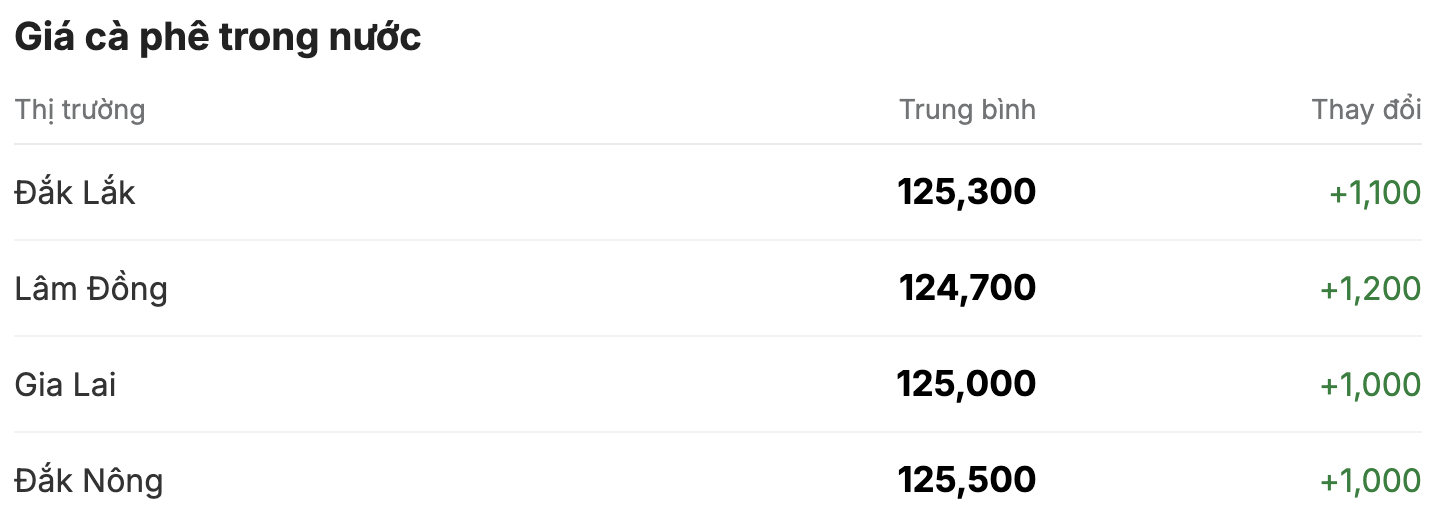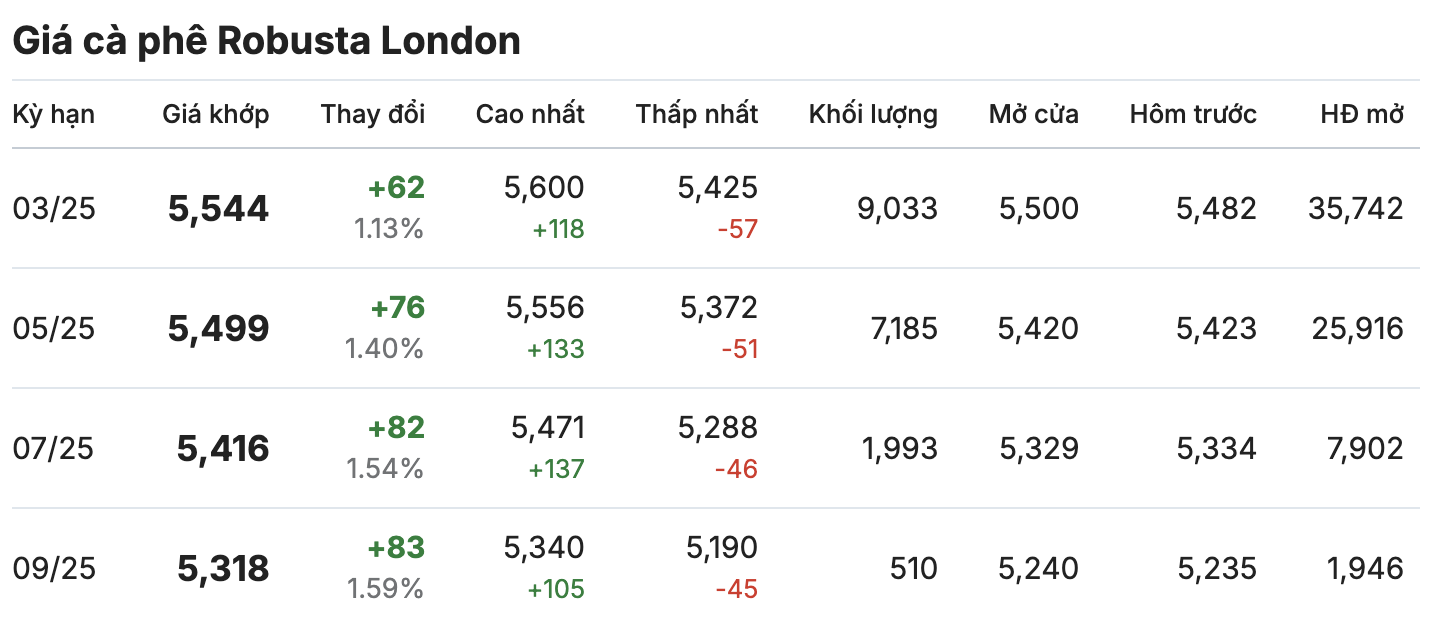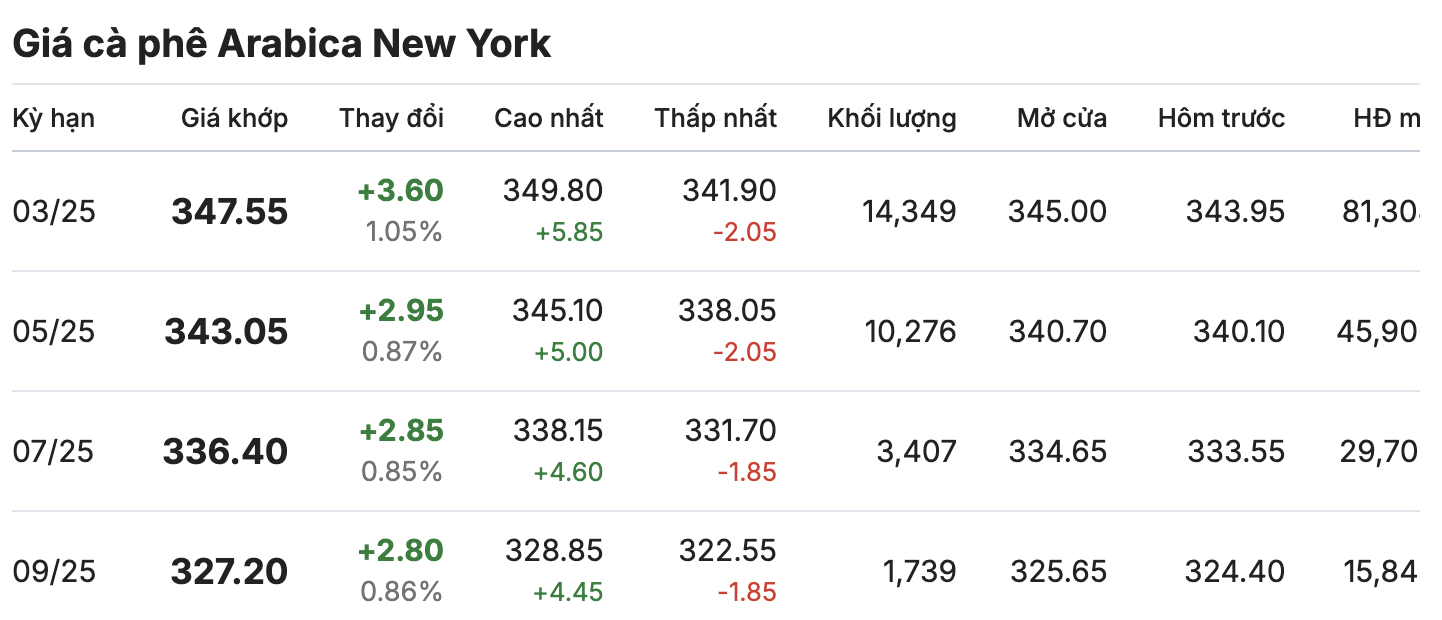As of 1:30 p.m. today (January 25), the domestic coffee market has been covered in green for a week, increasing by an average of VND1,000/kg per session. Currently, the purchase price fluctuates between VND124,700 - VND125,500/kg. The average coffee purchase price in the Central Highlands provinces today is at VND125,300/kg.
Lam Dong is still the province with the lowest coffee purchasing price in the Central Highlands. Compared to the slight increase yesterday (January 24), coffee prices in this region continued to skyrocket, up to 1,200 VND/kg, currently at 124,700 VND/kg.
Purchasing higher than Lam Dong, Gia Lai province recorded an increase of 1,000 VND/kg, standing at 125,000 VND/kg.
Dak Lak province alone increased the most today by 1,100 VND/kg, bringing the market price to 125,300 VND/kg.
Notably, Dak Nong province is still the leading province in the Central Highlands region, listed at 125,500 VND/kg.

On the London and New York exchanges, the coffee market moved in the same direction across all terms.
On the London Robusta Coffee Exchange, coffee prices continued to soar, far surpassing the peak of 5,000 USD/ton. The contract for delivery in March 2025 increased by 1.13% (equivalent to 62 USD/ton), reaching 5,544 USD/ton. In the same direction, the contract for delivery in May 2025 increased by 1.40% (equivalent to 76 USD/ton), anchoring at 5,499 USD/ton.

Similarly, the New York Arabica coffee market also recorded a surprising increase. The March 2025 and May 2025 delivery periods were respectively launched at 347.55 cents/lb and 343.05 cents/lb.

Concerns about global coffee supplies are supporting prices and spurring buying by hedge funds. A stronger Brazilian real is also supporting coffee prices after the real rose to its highest in nearly two months against the dollar on Friday.
Persistent worries in the coffee sector persist amid record prices, low global inventories and supply chain issues, Reuters reported.
In Vietnam, coffee prices rose last week following a rally in Robusta coffee on the London exchange, although traders said domestic trading was quiet ahead of the nine-day Lunar New Year holiday.











